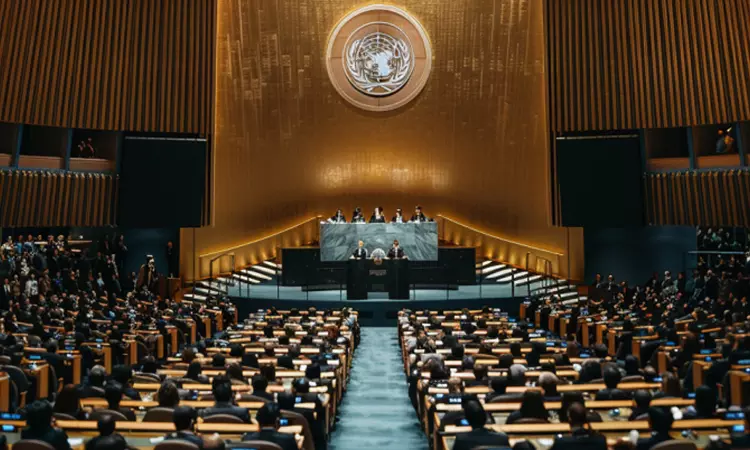UNGA Set To Deliberate On Resolution Recognising Srebrenica Genocide
Rajesh Kumar
26 April 2024 7:00 PM IST

Next Story
26 April 2024 7:00 PM IST
The UN General Assembly (UNGA) is set to deliberate on a resolution to acknowledge and commemorate the tragic events of the 1995 Srebrenica genocide. Lead by Germany and Rwanda and co-sponsored by several nations, including the United States and Bosnia-Herzegovina, this resolution aims to designate July 11th as the International Day of Reflection and Remembrance of the 1995...
